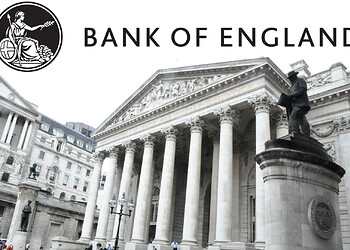This is a prime example of how people have to adapt and change to circumstances in the financial markets in relatively short space of time.
In June 2019 Mark Carney, governor of the Bank of England, set this particular ball rolling when he gave Libra a cool reception stating that Threadneedle Street would approach the digital currency with “ an open mind but not an open door ”.
Now, less than a year later we have the Bank of England chief cashier, Sarah John, and many other prospective international partners signalling support for an ‘official cryptocurrency’.
One has to ask what exactly would an ‘official’ cryptocurrency offer that can’t be done with the cryptocurrencies already established in the market place.
Moreover, is it not the case that the prime use for cryptocurrencies these days seems to be as a mechanism for speculation?
So isn’t this new call for bank-controlled cryptocurrencies all a little too late and somewhat hypocritical given their previous stance on the likes of Libra?
Maybe yes, but then again maybe no.
Everyone will probably agree that a digital currency is an asset that can essentially only exist electronically but then - simultaneously we are that aware that a few cryptocurrencies have bucked this trend and stepped over the line from the virtual world and into the physical world by creating credit cards and other physical devices with various degrees of success - but in the main the greater majority have continued as entirely intangibles.
The prime examples of this, such as Bitcoin, Ethereum, Litecoin, Ripple, Tether and the like, whilst in their conception they were designed to be used to make payments, today they are seen as assets with investment potential by financiers who acquire them in the belief their value will increase.
So why is the BofE currently carrying out research into digital currencies and the technology that supports them?
Is it greed, is it fear, or a combination of these factors underlined by the knowledge that other central banks such as China - widely viewed as the pathfinder here and far ahead of the pack although, understandably, detail of their project(s) are kept well under wraps and the Riksbank in Sweden rumoured to be close to launching an “e-krona” - have been clearly making strong progress in developing their own digital currencies for quite some time.
Obviously such cryptocurrencies would be different in as much as they would be issued and governed by a central bank and thereby have a stable value, which should make them more attractive and readily adopted outside the field of speculation.
The BofE is not alone in this as we also know that it has teamed up with other central banks - the likes of Japan, Switzerland, Canada and the Eurozone - at least for the initial feasibility stages. Their initial investigations will have to look closely at what effect any central bank controlled currency would have on overall financial stability and monetary policy and assess how safe and resilient they would be in the long run – factors not necessarily priorities for their future competition
